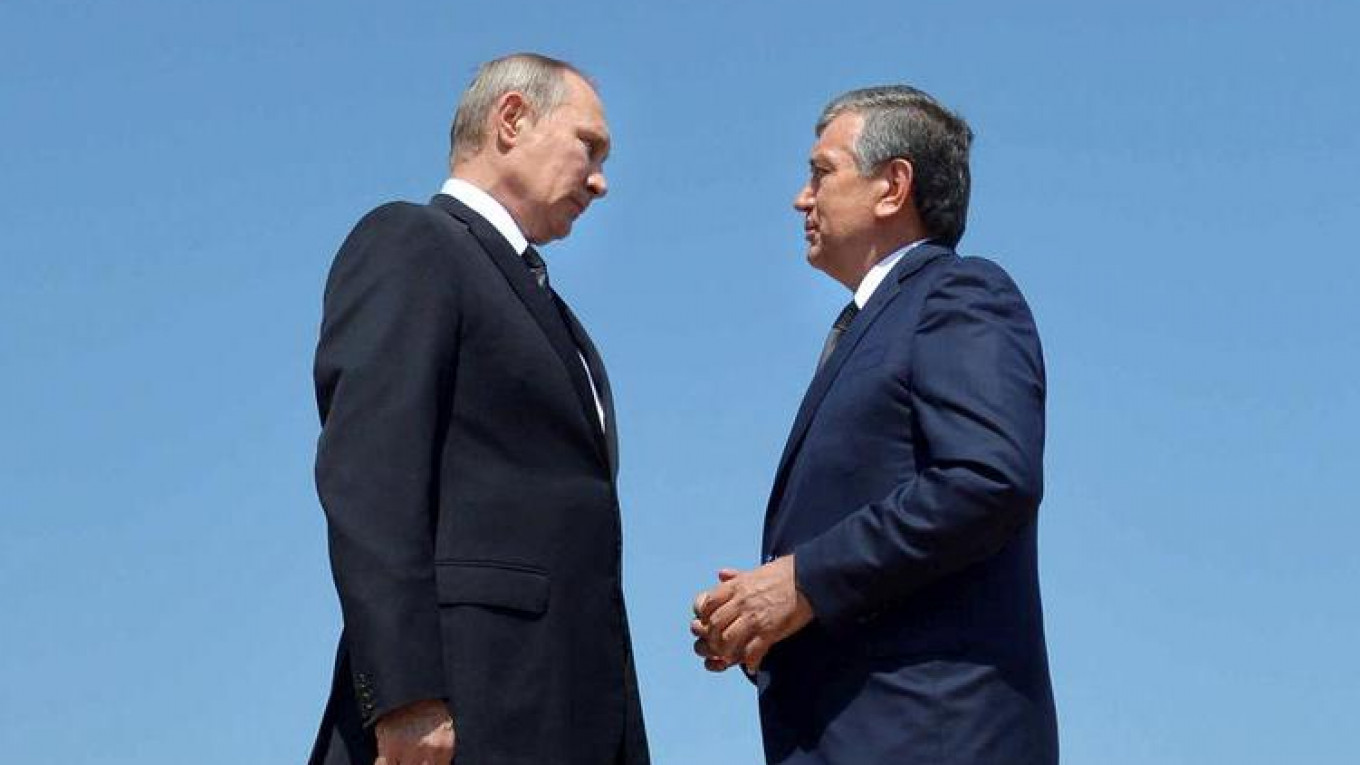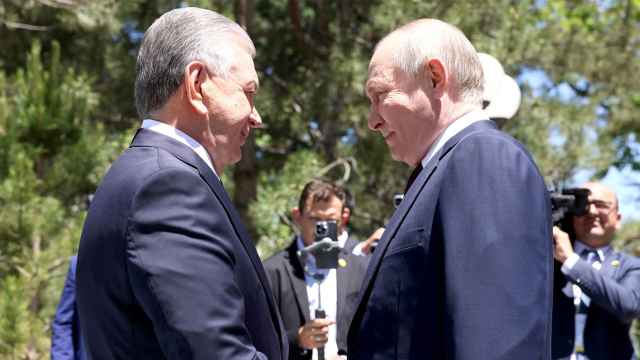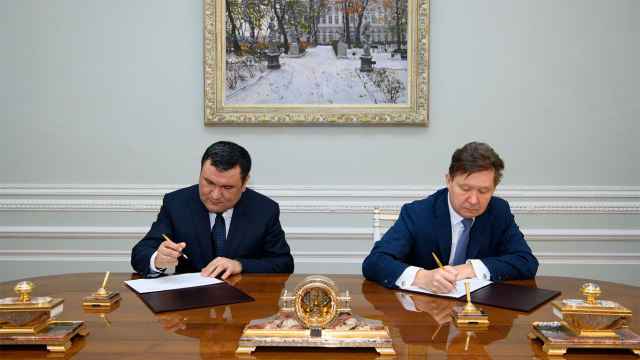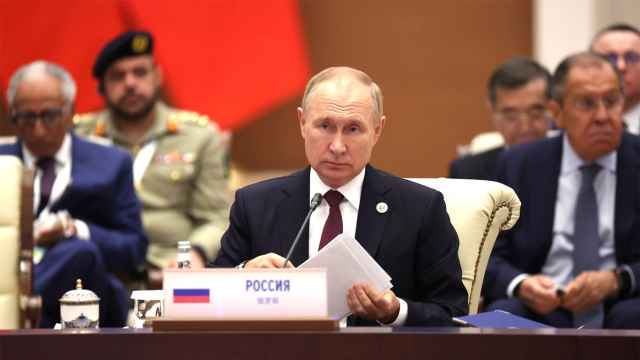Six months after the death of Uzbek President Islam Karimov, Uzbekistan is undergoing inevitable growing pains.
Predictions that its new leadership would squabble are coming true, as President Shavkat Mirziyoyev goes head to head with National Security Service (SNB) chief, Rustam Inoyatov.
The strongman Inoyatov is playing the role of a reactionary force and protector of traditional Karimov-era values. The president is presented as a liberal and a reformer.
That said, not even the most audacious of Uzbekistan's opposition exiled in the West would dream of describing the new president as a reformer — let alone a liberal.
But after twenty-five years of the Karimov dictatorship that deprived Uzbekistan of civil society and a full-fledged market economy, ordinary people are excited about any changes in the country that are not directed at a further crackdown on freedoms.
The old ruling class, for its part, is fearful of anything new.
Few people know what’s happening behind Uzbekistan’s corridors of power. We can’t say conclusively that there is an all-out conflict. But some of Mirziyoyev’s changes seem to have triggered disunity with strongman Inoyatov.
Inoyatov opposes Mirziyoyev’s plan to restore ties with the European Bank for Reconstruction and Development (EBRD), which has recently made renewed overtures to Tashkent. The EBRD left Uzbekistan after investing 900 million euros until the 2005 Andijan massacre when officers opened fire on a large crowd of protesters and growing concern over government repressions.
After Mirziyoyev came to power, Uzbek Foreign Ministry officials said it was possible revisit the prospects of cooperation. In turn, the EBRD said the bank would concentrate on supporting small and midsize businesses and improving the country’s business climate.
The reform that made revived EBRD ties possible was first presented last November in the form of a draft presidential decree that laid out plans for significant liberalization of the currency market.
Reportedly, Inoyatov vehemently opposed these changes, fearing that the reform could harm influential public officials — including himself and his subordinates — who are enriching themselves thanks to complicated currency regulations.
These currency rules make life more difficult for the business community, but prop up the black market that is controlled by the security services. While the private sale of currency is strictly prohibited in Uzbekistan, dollars and euros can easily be exchanged at any local market right under the nose of uniformed police officers.
Uzbekistan’s black currency market is quite impressive: according to some reports, virtually all remittances from Uzbeks working abroad—which made up 12 percent of the country’s GDP in 2012—are exchanged on the black market.
The SNB head and his affiliates also receive their share of revenues from Uzbekistan’s main exports: cotton, gold, and oil and gas. By taking advantage of the present currency regulations, security officials run their corruption schemes and transfer the profits to foreign banks.
Mirziyoyev’s reform would promote economic freedom and competition, which would clearly spell financial disaster for many government figures.
But the EBRD controversy might only be the tip of the iceberg in the conflict between Uzbekistan’s two most influential politicians.
Inoyatov was likely also alarmed by personnel choices made by the new president, such as bringing the sixty-seven-year-old Zokir Almatov out of post-Andijan retirement to head the State Anti-Corruption Commission, which Mirziyoyev could use to get rid of political opponents, including those in the SNB.
Almatov and Inoyatov have a troubled history, having vied for influence with the president in the mid-2000s. It’s possible that Almatov has retained his former ambitions and is thirsting for revenge against his old rival with the new president by his side.
For his part, the president has in Almatov someone who has first-hand experience of Inoyatov’s methods, and who is capable of undermining his influence.
It’s also telling that instead of appointing Inoyatov’s protégé Adkham Akhmedbayev to the position of minister of internal affairs, Mirziyoyev chose Abdusalom Azizov: a man once considered the creature of Almatov.
The recent firing of Inoyatov’s first deputy, Shukhrat Gulyamov, further eroded the security chief’s position. General Gulyamov had gained so much clout by the end of Karimov’s rule that he was delegating his own candidates to the positions of mayors and governors.
Inoyatov saw Gulyamov as his successor as the head of SNB, but Mirziyoyev decided to do away with the omnipotent general, removing him from all his positions and stripping him of his rank after the general reportedly ignored a transfer order to the Surxondaryo region.
So far, none of these personnel changes have had an impact on Inoyatov himself: he’s still firmly in his place and is apparently responsible for the rollback of reforms in the past few months: When the president postponed the implementation of visa-free travel for nationals of 15 countries from April 2017 to 2021, one of the official reasons given for the change was the need to ensure the security of both foreign tourists and Uzbek nationals — The plan to restart flights between Uzbekistan and Tajikistan never got off the ground either.
For a long time, Uzbekistan shared the title of the most totalitarian state in the region with Turkmenistan. Mirziyoyev apparently prefers the Kazakhstan model, where a veneer of democracy does not stop Nursultan Nazarbayev from retaining all power for himself, having created a personality cult.
In this case, Inoyatov will have to either support the president’s agenda completely, or attempt to return Uzbekistan to the way it was under Karimov. But the resources he has to achieve dictatorship status are getting smaller and smaller every day.
A Message from The Moscow Times:
Dear readers,
We are facing unprecedented challenges. Russia's Prosecutor General's Office has designated The Moscow Times as an "undesirable" organization, criminalizing our work and putting our staff at risk of prosecution. This follows our earlier unjust labeling as a "foreign agent."
These actions are direct attempts to silence independent journalism in Russia. The authorities claim our work "discredits the decisions of the Russian leadership." We see things differently: we strive to provide accurate, unbiased reporting on Russia.
We, the journalists of The Moscow Times, refuse to be silenced. But to continue our work, we need your help.
Your support, no matter how small, makes a world of difference. If you can, please support us monthly starting from just $2. It's quick to set up, and every contribution makes a significant impact.
By supporting The Moscow Times, you're defending open, independent journalism in the face of repression. Thank you for standing with us.
Remind me later.






